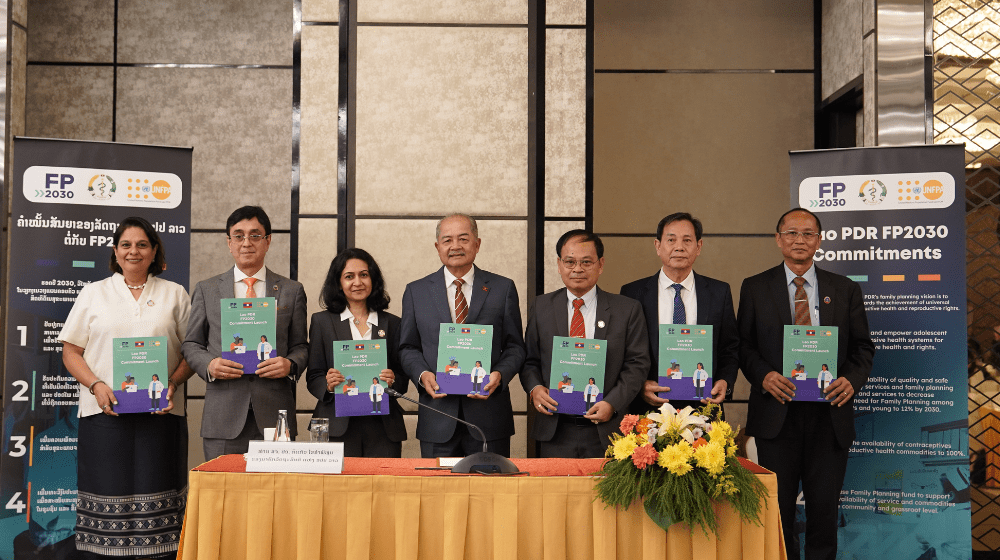Vientiane, Lao PDR, 29 March 2024 – The Government of Lao PDR, represented by the Ministry of Health launched today its commitment to Family Planning 2030 (FP2030), a global partnership working to ensure that all people have access to the reproductive health care they need to build a better future.
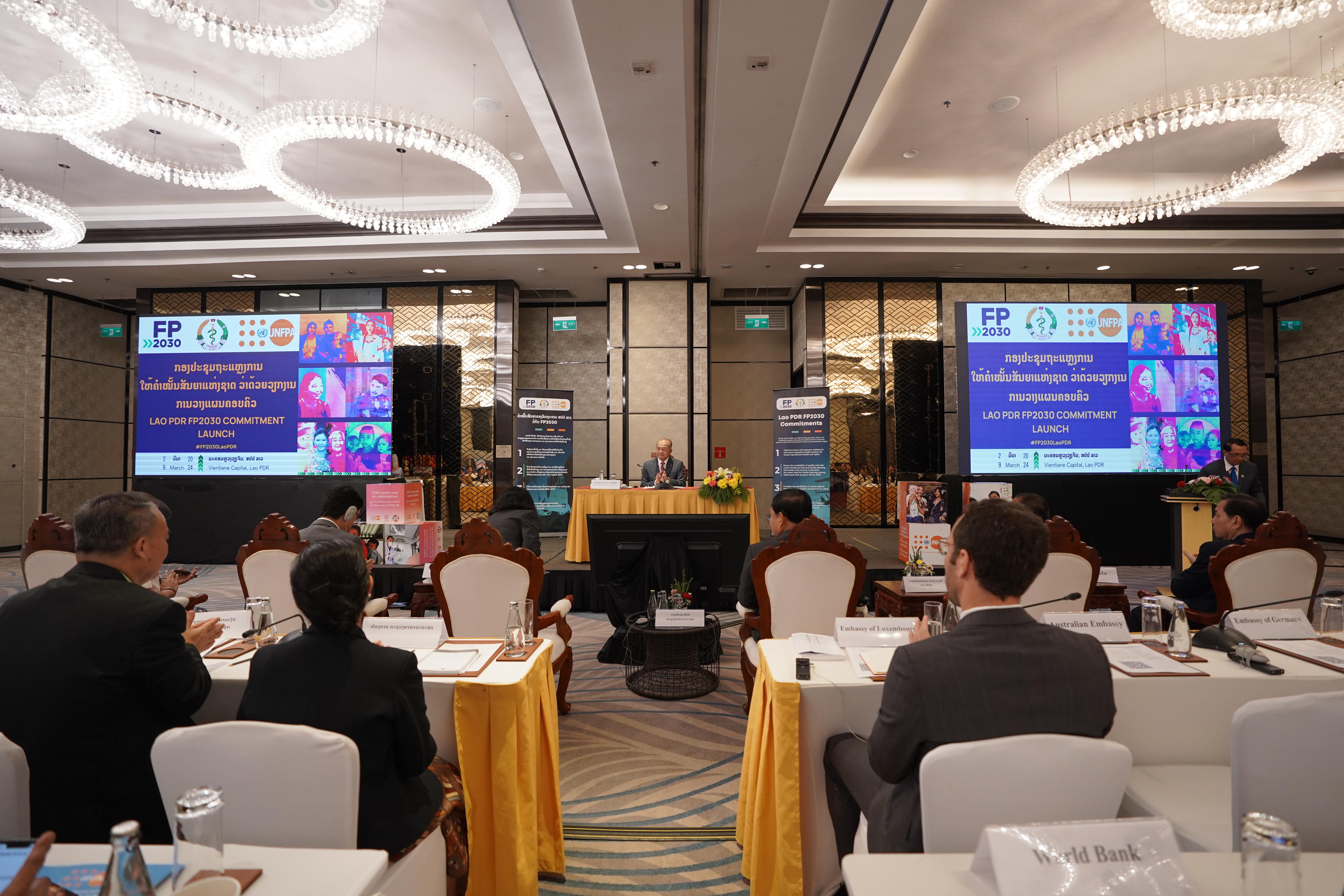
The launch, which took place in Vientiane Capital, marks the official start of FP2030 commitments’ implementation in the country. Representatives from the different departments of the Ministry of Health as well as other line ministries involved in the sexual and reproductive health agenda were present such as the Ministry of Education and Sports, Lao Youth Union, Lao Women’s Union etc to reiterate their sector’s engagement and contribution.
The National Commitment to FP2030 is a significant milestone in Lao PDR's efforts to accelerate progress towards the achievement of universal access to sexual and reproductive health and reproductive rights by 2030. It aligns with Lao PDR commitment to the International Conference on Population and Development (ICPD) and builds on the government’s policies, programs and progress over the past thirty years, since the adherence of Lao PDR to the ICPD in 1994.
Under FP2030, Lao PDR is committed to: i) Improving access to adolescent and youth-responsive health systems for contraceptive use; ii) ensuring the availability of quality and safe Youth Friendly Services and family planning information and services to decrease the unmet need for family planning among adolescents and young people aged 15 to 24 years old to 12% by 2030; iii) Increasing the availability of contraceptives and reproductive health commodities from 53% to 100% while ensuring no stock out; and iv) increasing the family planning fund to support the availability of commodities at the lower level.
In his opening remarks H.E. Professor Dr. Kikeo Khaikhamphithoune, Deputy Prime Minister said "On behalf of the Lao government striving to achieve SDG3, I formally announce the launch of Lao PDR's FP2030 commitment for a future where family planning and sexual and reproductive health choices and means are accessible to all. My gratitude extends to all stakeholders present today. Together, we will work to fulfill these commitments for a healthier tomorrow for all in Lao PDR."
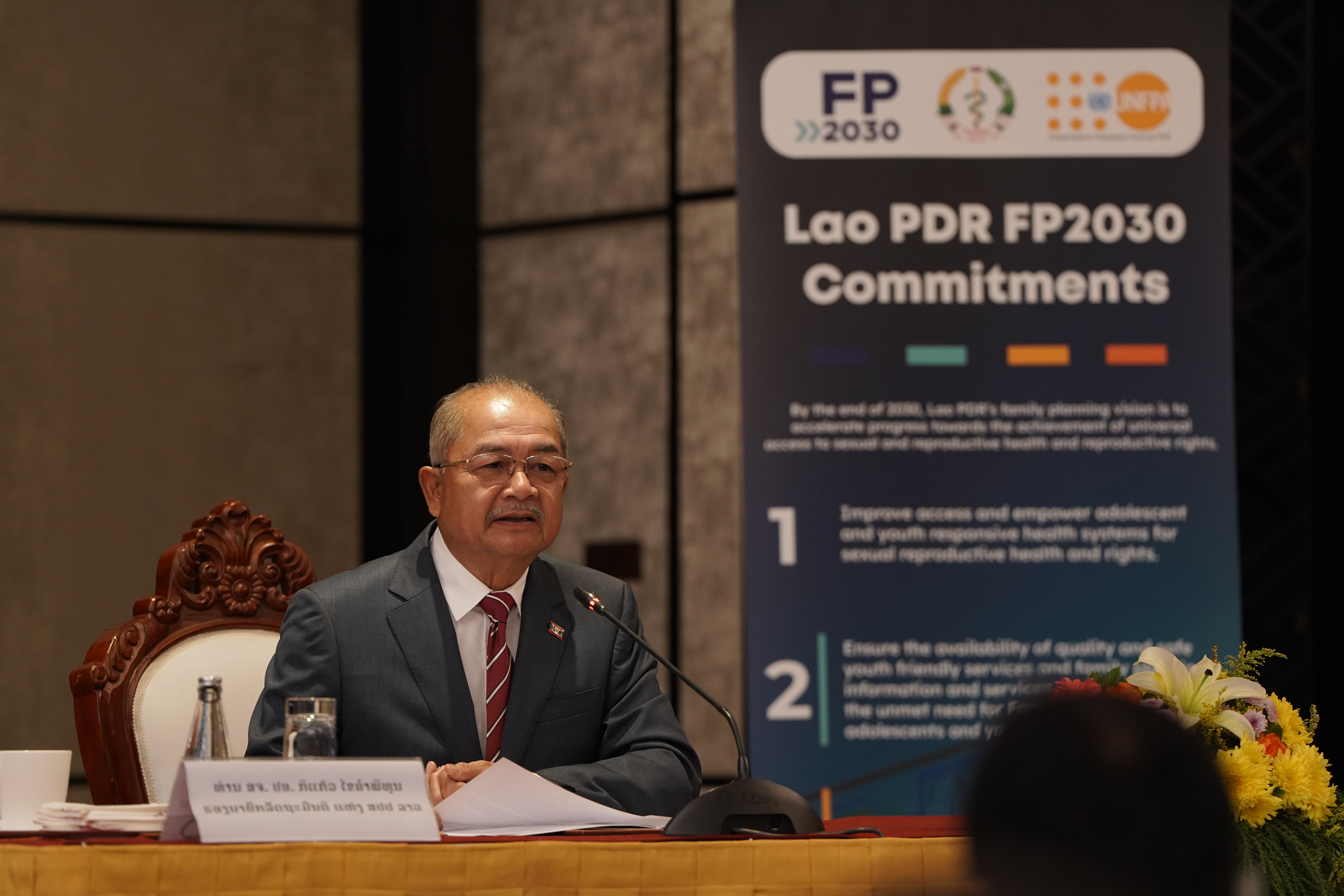
"Laos made great gains towards realizing the ICPD’s vision to put women, girls and youth dignity and human rights, including the right to plan one’s own family, at the center of the development agenda in our country. Now, with UNFPA support and other partners' engagement, we need to move faster. We need to reach everyone, ensuring services are accessible, available and of good quality to leave no one behind. The FP2030 commitment comes at a great time for the forthcoming of the Commission on Population and Development, fifty-seventh session that the government of Lao PDR will join to showcase our best practice on midwifery education and reiterate our full engagement to put the human development at the center of our policies and programs. '' said Dr. Snong Thongsana, Deputy Minister of Health.
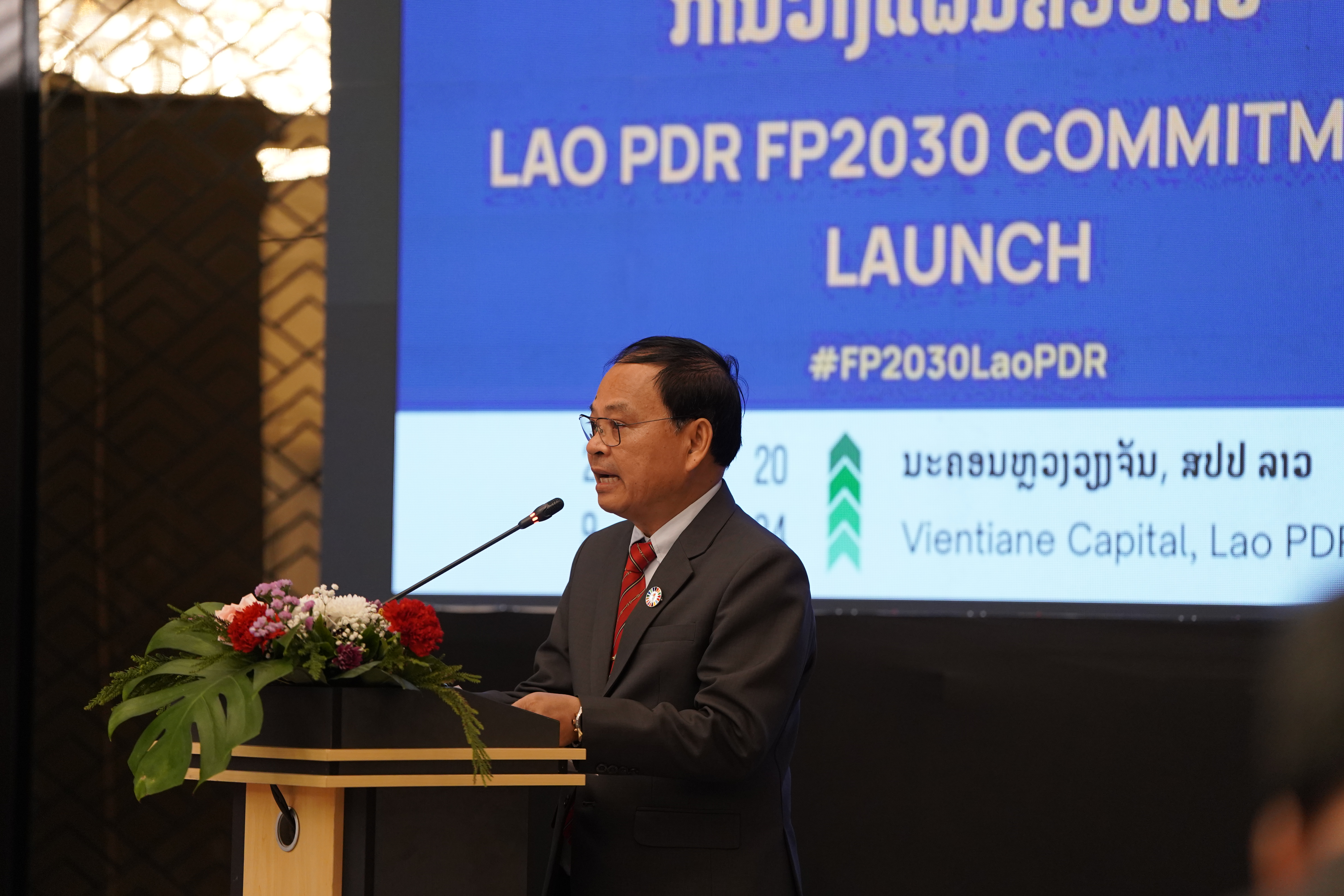
This high level meeting was also an opportunity to raise awareness of the different stakeholders on the returns on investments in voluntary family planning services with the aim to secure political commitment from all line ministries, and advocate for further resource mobilization including domestic financing and international donor support.
FP2030 is a global partnership of over 100 countries, donors, civil society organizations, and the private sector to ensure that all people have access to the reproductive health care needed to build a better future. Since its launch in 2012, FP2030 has helped achieve significant progress in improving reproductive health and rights around the world.
Sumita Banerjee, FP2030 Asia & Pacific Hub’s Managing Director, said “We at FP2030 congratulate the Ministry of Health, UNFPA, all stakeholders, and the citizens of Lao PDR on the launch of their FP2030 commitment. This initiative is a pivotal step forward in advancing family planning and reproductive health rights and choices for everyone, with a focus on youth-responsive health systems, quality service provision, and ensuring contraceptive availability. This historic moment represents a significant stride in reducing unmet family planning needs, combating adolescent pregnancies, empowering youth, and especially supporting women's reproductive health in accordance with universal health protocols. It promises a brighter and healthier future for Lao and its people.”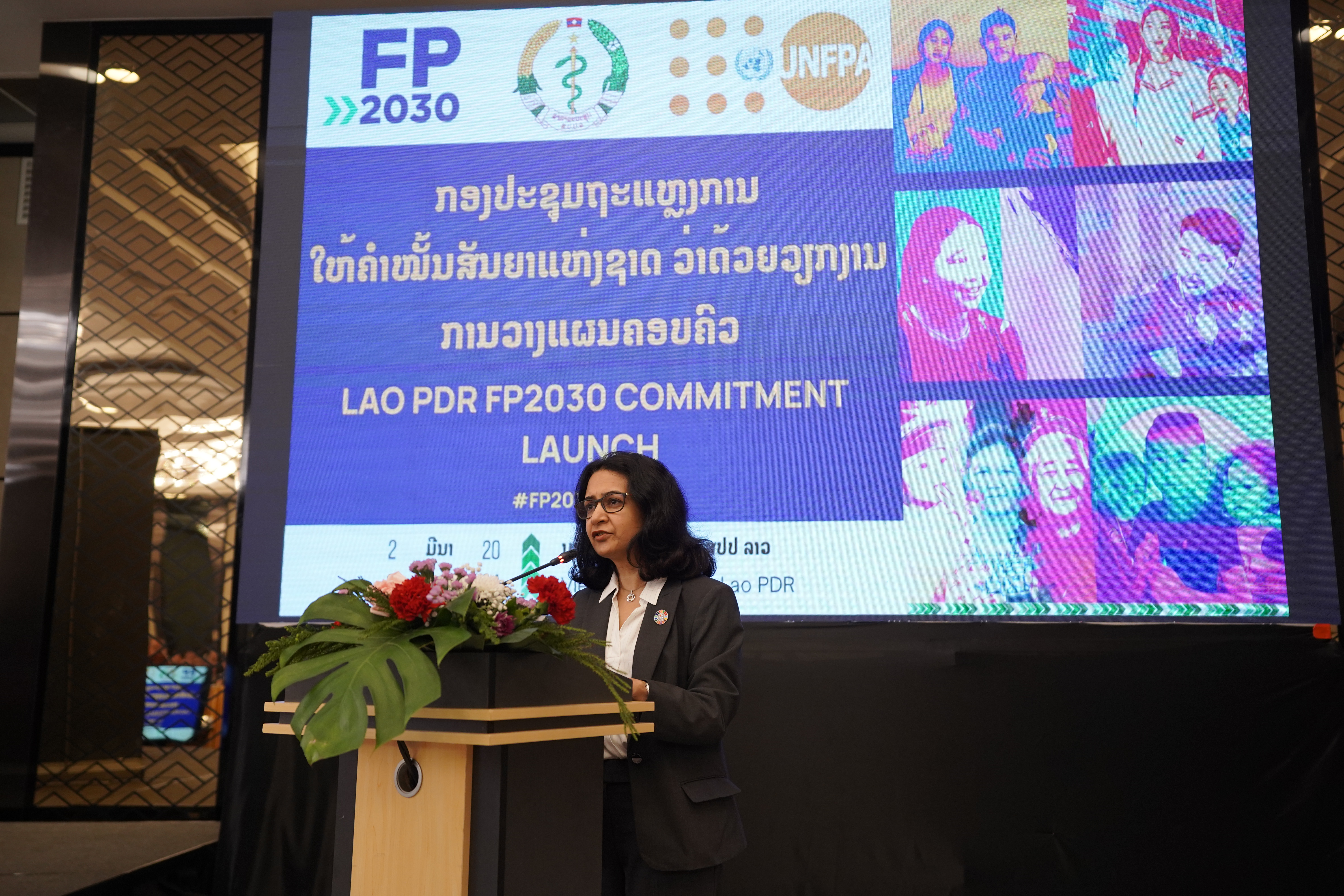
The launch of FP2030 in Lao PDR is a major step forward for the country's reproductive health and rights agenda. Under this commitment, Lao PDR will aim to support adolescent girls and boys to delay pregnancy and marriage until adulthood by helping them acquire skills and competencies and receive care and family planning services and commodities. The country will strengthen the community programs and availability of commodities to ensure every pregnancy is by choice, safeguarding maternal health so that no woman dies while giving life, and ensuring women and girls can live a life free from abuse and violence. These are essential preconditions for women, girls and youth to stay at school, combat misconceptions and social norms, say no to dependency and abuse, access good job opportunities to ultimately realize their full potential and for the country to realize its social and economic development.
Dr. Bakhtiyor Kadyrov, UNFPA Representative said, “Safe and voluntary family planning is a fundamental human right. Rights-based family planning is a best value-for-money investment that delivers a wide range of health, social and economic benefits for women and girls and their families and communities and a whole nation. For instance, an investment case and analysis conducted in Lao PDR estimated that for every dollar invested in family planning, benefits to families and societies are estimated to be around USD 33.6. Furthermore, family planning helps to keep adolescent girls in school, enables women to join the labor force, helps reduce household poverty, improves nutrition, and reduces inequalities.”
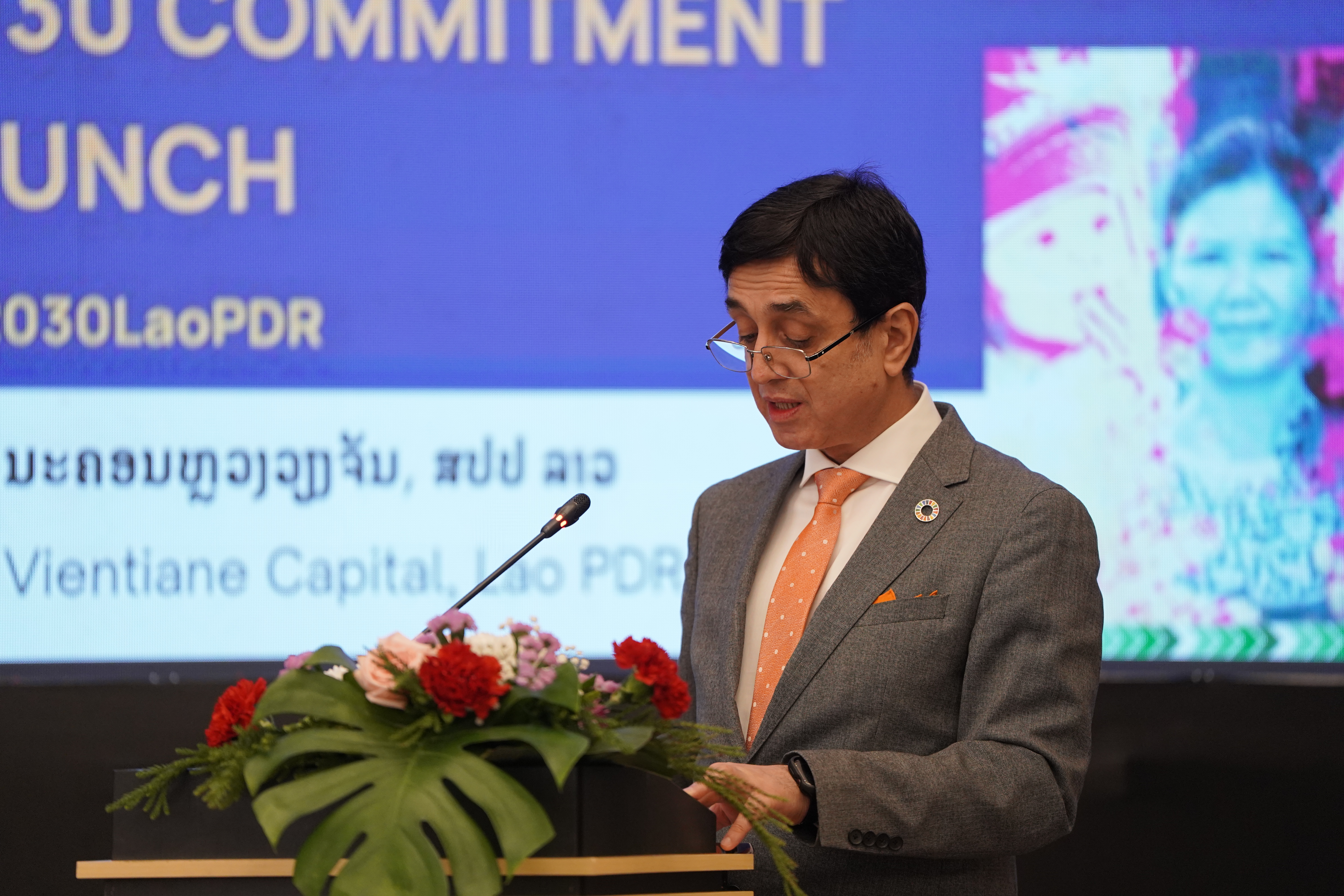
It is central to gender equality and women’s empowerment, and it is a key factor in reducing poverty, increasing people’s ability to build a better future for themselves, their families, their communities and the whole nation to ensure Laos reaches the benefits of its young population.”
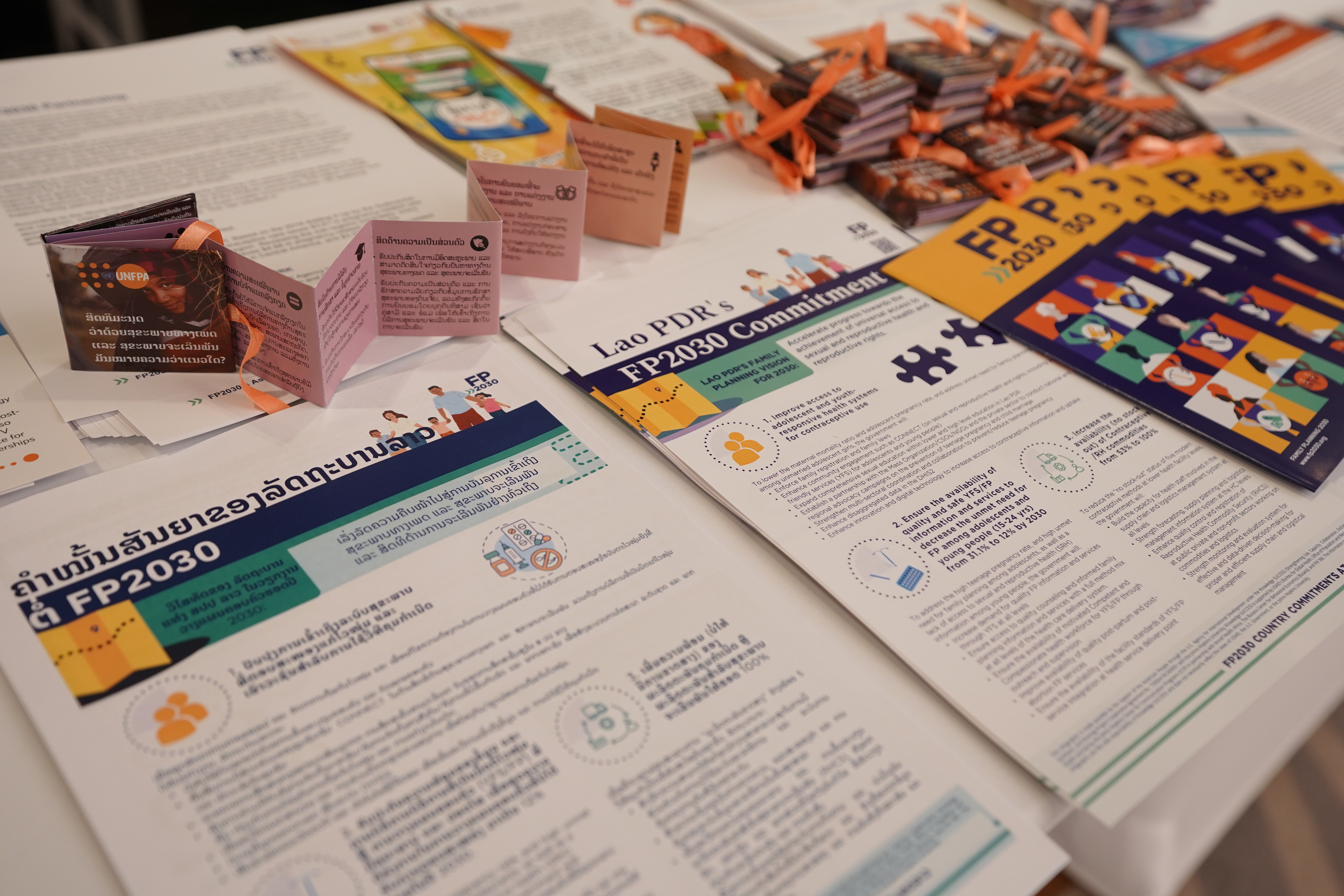
In Laos, the family planning interventions need an additional cost of 16.7 million dollars by 2030 which in return will generate 560 million dollars, a benefit-cost ratio of 33.6. By investing in the most economical interventions: rights-based family planning methods and by making them available in all provinces, Laos can avert 1,044,888 unintended pregnancies which will result in reducing the cost requirements for other health interventions and lead to economic benefits from increased workforce participation, additional years of education for adolescents, and increased lifetime earnings for women, realizing ultimately their wellbeing and prosperity of their families and communities.
_____
UNFPA, the UN's sexual and reproductive health agency, works in over 150 countries, including Lao PDR, to achieve zero maternal deaths, zero unmet need for family planning and zero gender-based violence.
For more information, please contact:

